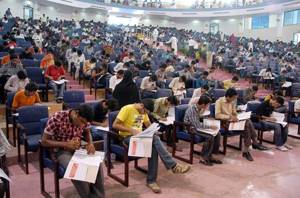
The Higher Education Commission (HEC) of Pakistan has announced a revised curriculum for three major degree programs—Doctor of Pharmacy (Pharm D), Food Science and Technology, and Human Nutrition—in line with its Undergraduate Education Policy 2023. According to officials, this initiative aims to modernize higher education in Pakistan, strengthen academic standards, and better prepare students for the evolving global job market.
HEC’s Commitment to Quality Education
Education plays a critical role in national development, and the HEC has consistently emphasized reforms to improve the quality of academic programs across universities. With this newly introduced syllabus, the commission aims to ensure that graduates in pharmacy, food sciences, and nutrition are equipped with the knowledge and practical skills needed to meet both national and international professional demands.
Officials highlighted that the revision process involved intense collaboration between university professors, subject experts, accreditation councils, and industry stakeholders. The focus was not only on academic rigor but also on aligning coursework with the market-oriented skills that employers seek.
Updated Syllabus Based on International Standards
HEC representatives noted that the new syllabi are designed in accordance with international best practices. By integrating globally recognized teaching methodologies and content, the commission hopes to raise the competitiveness of Pakistani graduates on the world stage.
Pharm D (Doctor of Pharmacy): The updated curriculum introduces advanced pharmaceutical sciences, clinical pharmacy modules, pharmacovigilance, and research-based learning. It aims to prepare pharmacists for roles not just in hospitals and community pharmacies but also in research, drug regulation, and pharmaceutical industries.

Food Science and Technology: With Pakistan’s food industry rapidly expanding, the new syllabus covers food processing, biotechnology, safety standards, and sustainable food systems. It also addresses global concerns such as climate change and food security.
Human Nutrition: Recognizing the rising importance of health and diet, the revised program integrates clinical nutrition, dietetics, nutritional biochemistry, and community health. Students will gain expertise to work in hospitals, public health sectors, wellness industries, and academia.
Bridging Academia and Industry
One of the standout features of the new curriculum is its emphasis on practical skills and industry linkages. The HEC has ensured that the updated syllabus incorporates internships, laboratory training, case studies, and applied research. This shift is expected to reduce the gap between classroom learning and workplace requirements.
Industry experts who participated in the syllabus design process stressed the importance of aligning education with emerging market trends. For example, the pharmaceutical sector requires graduates who can handle modern drug formulations and regulatory compliance, while the food and nutrition industry demands professionals trained in global safety standards and innovative technologies.
Role of Undergraduate Education Policy 2023
The Undergraduate Education Policy (UEP) 2023 serves as the backbone of this reform. It emphasizes competency-based learning, flexibility in courses, and outcome-based education. The HEC has used this policy as a guiding framework to ensure that the three degree programs produce graduates who are problem-solvers, innovators, and critical thinkers.
The policy also stresses interdisciplinary learning, allowing students to connect pharmaceutical sciences with biotechnology, nutrition with public health, and food sciences with environmental sustainability.
Accessibility for Universities and Students
To ensure smooth adoption, the HEC has dispatched the revised syllabus to universities nationwide. Moreover, the updated curriculum is available on the official HEC website, enabling both faculty and students to access and review the changes. This transparency reflects HEC’s commitment to inclusivity and standardization across higher education institutions in Pakistan.
Expected Impact on Students and Job Market
Educational experts believe that the updated syllabi will significantly enhance the employability of graduates. With a growing demand for qualified pharmacists, nutritionists, and food technologists both in Pakistan and abroad, these changes are expected to open up diverse career opportunities.
Pharm D graduates can look forward to careers in clinical settings, pharmaceutical research, drug regulation, and even international healthcare systems.
Food Science and Technology graduates will be better equipped to join multinational companies, food processing industries, quality assurance departments, and research institutions.
Human Nutrition graduates can pursue roles as clinical dietitians, public health nutritionists, consultants, and educators.
By aligning degrees with market relevance, the HEC aims to reduce unemployment among graduates and increase Pakistan’s share of skilled professionals worldwide.
Reactions from Academia and Industry
University professors and industry representatives have welcomed the decision. They argue that Pakistan’s higher education sector must continuously evolve to stay competitive. The revised syllabi are seen as a progressive step toward modernization, ensuring that students are not left behind in a rapidly changing global landscape.
Some experts have also suggested that the next step should involve continuous monitoring and periodic updates to the syllabus so that it remains relevant with technological and scientific advancements.
Future Directions for HEC
While these changes mark a significant milestone, the HEC has hinted at further reforms in other disciplines. Officials have stated that similar updates for programs in engineering, business administration, and social sciences are under consideration. The ultimate goal is to standardize and uplift higher education across all fields, making Pakistani universities globally competitive.
Related News
-
.png) 09-Sep-2025
09-Sep-2025PPSC Final Merit List 2025 Announced

.gif)








.png)







.png)


.png)